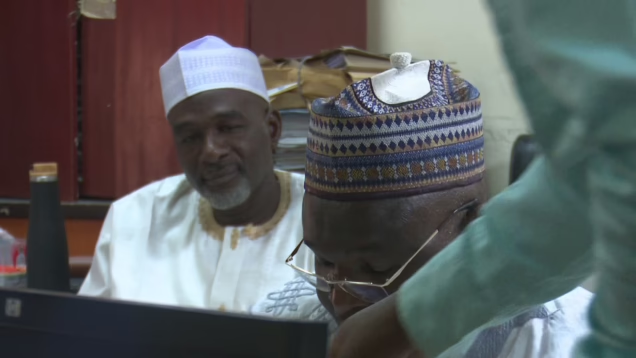By Zainab Nasreen Muhammad
When one speaks to Nigerians these days, the high cost of living is an unavoidable topic. The unbelievable increase in the prices of things – and in such a short period – is something that most of us did not see coming.
We now reminisce about the good old days not too long ago – they were just last year, and maybe the year before. The National Bureau of Statistics (NBS) reported that inflation rose to 34.2 percent in June 2024 from 22.8 percent in June 2023.
Even food has somewhat become a luxury; as of January 2024, the NBS reported a 98.47% increase in the cost of 1kg of rice in just one year. The average price of 1kg of beef increased by 37.08%, and for 1kg of beans, there was a 64.42% increase. According to the World Bank, about 40.7 percent of Nigerians live below the international poverty line of 2.15 dollars (about 3,400 naira) per day.
Due to this economic situation which seems to keep worsening, Nigeria is facing an unprecedented malnutrition crisis with the north suffering the worst of it. Simply put, malnutrition – specifically undernutrition – is a serious health condition that develops when one does not have enough nutrients to meet their body’s needs.
According to the World Food Program (WFP), 4.4 million Nigerian children under the age of five suffer from severe acute malnutrition (SAM). Seven percent of women of childbearing age also suffer from SAM. This chronic case of malnutrition stunts the growth of children and makes it much easier for them to catch diseases. Malnourished nursing mothers are also not able to breastfeed their babies as much as they should, or even at all.
The bulk of this crisis lies in two key issues; the economic crisis, and insecurity which have continued to worsen.
Climate change is an additional cause; every year, the Sahel region goes through the lean season which is a period between harvests when food becomes scarcer and less affordable. Desert encroachment is also destroying farms in the northeast, causing farmers and farming communities to leave everything behind and search for greener pastures.
As the issue of insecurity prevails in the northwest, north-central, and northeast, families who used to be able to feed themselves through subsistence farming have been killed or forced to leave their farms. Commercial farmers have lost their farmlands because of high taxation by bandits. Additionally, farming communities have turned into ghost towns because of the high level of insecurity. Areas in which specific food items are planted are no longer harvesting as much, and this has led to shortages. The impact of this on the economy is currently reflected in the rise of food prices, and adverse food insecurity.
Medecins Sans Frontiers (MSF) – famously referred to as Doctors Without Borders – has been at the forefront of offering humanitarian aid to people suffering from malnutrition in northern Nigeria. Despite MSF’s generous response, this humanitarian aid remains inadequate. Non-profit organizations in the north are also overwhelmed – there is only so much Non-Governmental Organizations can do.
State and local governments must step in with a bigger and better response to this situation; starting by upgrading primary healthcare facilities, so that malnutrition can be diagnosed and treated quickly and effectively. The government must also provide supplies to prevent, diagnose and treat malnutrition. Most importantly, insecurity in the north must come to an endfor the people who lived in the affected areas to return to their normal lives and businesses.
Besides taking these malnourished people to healthcare centresfor diagnosis and treatment, families must be empowered to be able to provide for themselves. The dispersal of palliatives is simply not sustainable. People need access to long-term means of livelihood so that they can be independent and thrive.
All levels of the government must join hands to find better ways to end insecurity so that people can go back to their original communities to farm, sell their produce, rear their animals, and continue to earn an honest living.
It is upsetting that Nigeria has such a high number of malnourished people when we are neither at war, nor are we experiencing a famine. The lives of many members of the future generation hang in the balance due to this malnutrition crisis.
Parents of these malnourished children are not asking for anything other than security so that they can go back home to arm and harvest their own food. Security is the bare minimum.
Zainab Muhammad is a Mass Communication student at the Pan-Atlantic University, Lagos.
 Join Daily Trust WhatsApp Community For Quick Access To News and Happenings Around You.
Join Daily Trust WhatsApp Community For Quick Access To News and Happenings Around You.










